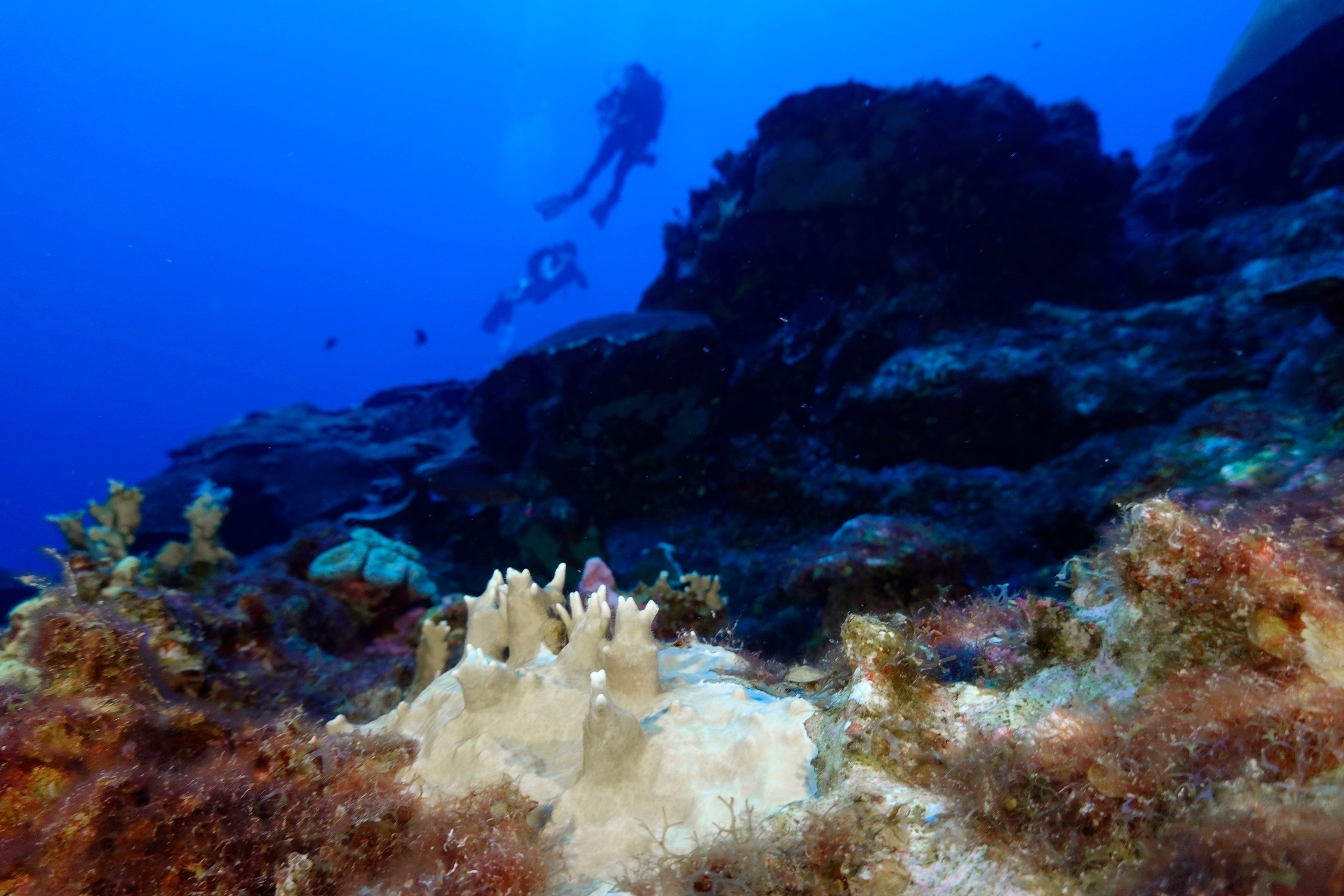Fourth mass coral bleaching prompts UN emergency session at Colombia biodiversity summit
CALI, Colombia (AP) — The United Nations, scientists and governments made an urgent call Wednesday for increased funding to protect coral reefs under threat of extinction.
 FILE - Bleached coral is visible at the Flower Garden Banks National Marine Sanctuary, off the coast of Galveston, Texas, in the Gulf of Mexico, Sept. 16, 2023. (AP Photo/LM Otero, File)
FILE - Bleached coral is visible at the Flower Garden Banks National Marine Sanctuary, off the coast of Galveston, Texas, in the Gulf of Mexico, Sept. 16, 2023. (AP Photo/LM Otero, File)
Research this year shows that 77% of the world’s reefs are affected by bleaching, mainly due to warming ocean waters amid human-caused climate change. It's the largest and fourth mass global bleaching on record and is impacting both hemispheres, United Nations Capital Development Fund said.
The findings prompted a U.N. special emergency session — typically called to address escalating conflicts or natural disasters — on corals to be convened on sidelines of the U.N. biodiversity summit, known as COP16, nearing its end after two weeks in Cali, Colombia.
Coral reefs are vital ecosystems that support over 25% of marine life and nearly a billion people, many relying on reefs for food security, coastal protection and livelihoods, the U.N. development fund said.
After the emergency session, the governments of New Zealand, the United Kingdom, Germany and France made new pledges totaling around $30 million to the U.N. fund for coral reefs established in 2020. By 2030, the fund seeks to leverage up to $3 billion in public and private finance to support coral reef conservation efforts. Around $225 million has been raised to date.
“Protecting our ocean and its precious habitats is fundamental to life on earth," said U.K. Minister for Nature Mary Creagh. "But without urgent action, the world’s coral reefs face extinction from global heating, acidification, disease, and pollution; a vital ecosystem lost within our lifetime.”
Next year, a U.N. ocean conference will take place in Nice, France, and countries are being urged beforehand to pledge more to the U.N. global fund for coral reefs with the aim of mobilizing an additional $150 million in donations by the conference.
“In 2024, climate change and other human impacts triggered the fourth mass coral reef bleaching event, the most extensive and devastating on record," said Peter Thomson, the U.N. Secretary-General’s Special Envoy for the Ocean. "With the window to protect these ecosystems closing rapidly, world leaders must act now."
"We must secure a sustainable future for coral reefs and the countless lives that rely on them —before it’s too late,” Thomson said.
A change in water temperature can cause coral to drive out algae that provides nutrition, lose its color and become stressed. Coral may bleach for other reasons, such as extremely low tides, pollution or too much sunlight.
In the world’s largest coral reef ecosystem, Australia’s Great Barrier Reef, bleaching affected 90% of the coral assessed in 2022. The Florida Coral Reef, the third-largest, experienced significant bleaching last year.
The first mass bleaching happened in 1998, the second between 2011-2013, the third in 2016, said Kenyan marine ecologist David Obura, who heads Coastal Oceans Research and Development in the Indian Ocean East Africa.
“They're lasting more than one year at a time, which is worrying,” Obura said at the U.N. emergency session at COP16.